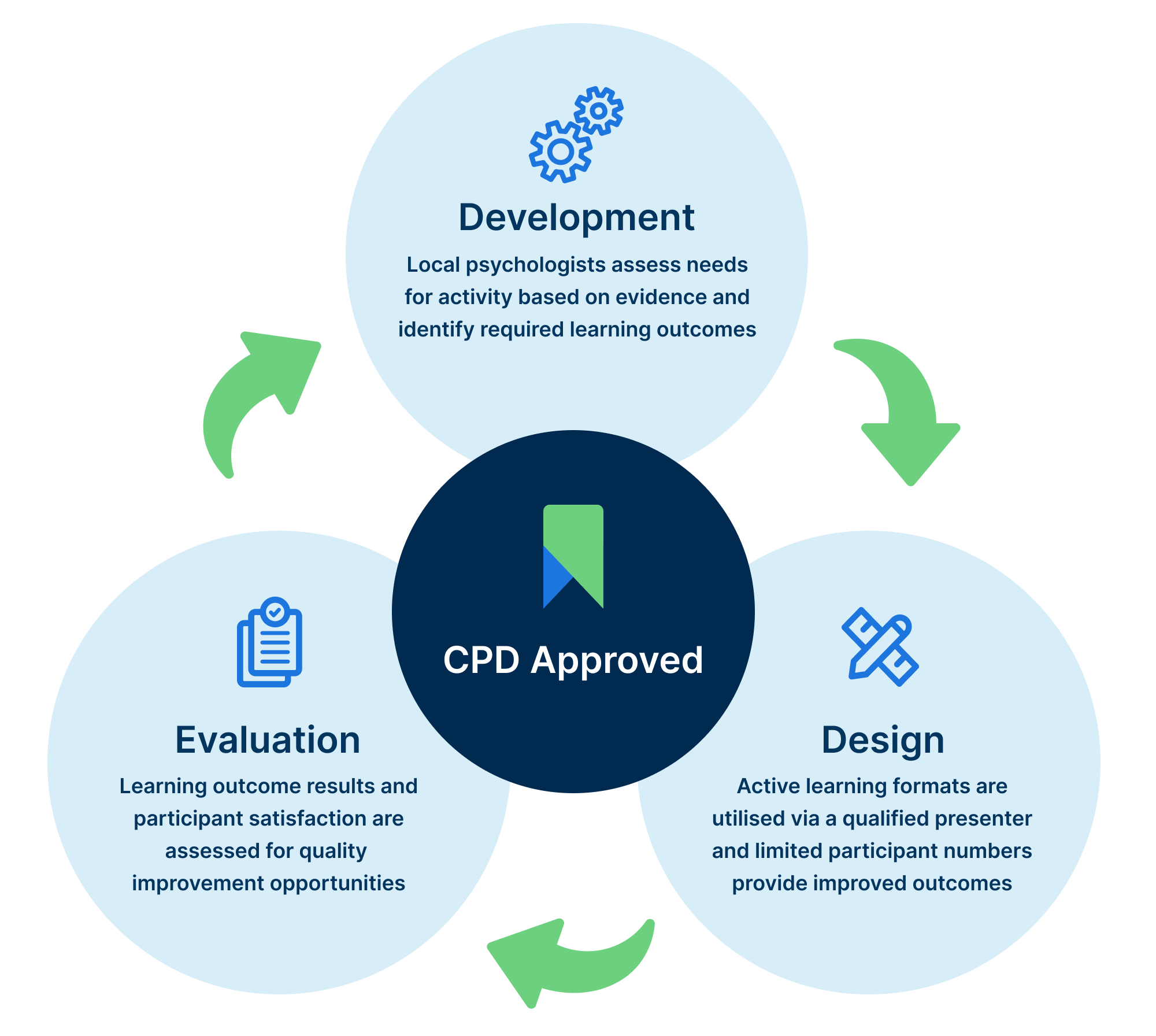Under the Health Practitioner Regulation National Law Act, which governs the operations of the Australian Health Practitioner Regulation Agency (AHPRA) and the National Boards for Health Profession, all registered psychologists must undertake Continuing Professional Development (CPD).
CPD is how registered psychologists develop their professional qualities and maintain, improve, and broaden their knowledge, expertise, and competence. Professional development is an ongoing process that promotes lifelong learning that continues over the course of a psychologist’s career, adapting to changes in practice environments, professional domains, new information and consumer needs. A psychologist’s scope of practice is determined by formal qualifications, vocational choices, career pathways and experience, including the CPD they complete. After completing a PsyBA-approved program of study as the minimum threshold to enter the profession, CPD helps psychologists to maintain competence once they are registered. Professional competencies for psychologists are set out in the Australian Psychology Accreditation Council Accreditation Standards for Psychology programs.
The Psychology Board of Australia (PsyBA) CPD registration standards on Continuing Professional Development, describes the specific requirements that must be met by psychologists when undertaking CPD to meet the PsyBA’ s annual registration requirement.
Guiding principles
CPD activities must be directed towards enhancing professional competencies (both skills and knowledge).
This includes, keeping up to date with advances in research evidence and theoretical developments in various domains of psychology, organisation of work (team building and leadership), communication, ethics, teaching, research, and administration.
CPD activities should:
- Incorporate adult-learning principles,
- Be outcome-focused,
- Seek to ensure continued competence in a psychologist’s area of practice and, if relevant, develop skills and knowledge in a new area of practice,
- Seek to ensure they contribute to the quality psychologist’s practice, which results in the maintenance, of high-quality client services and patient care, and
- Be founded on evidence-based best practice.
APS CPD Approval
CPD activities developed by Third-Party Providers relevant to psychology, and the professional development of psychologists and relevant Allied Health professionals are assessed against the APS Standards for CPD activities. When approved, the process allows for Providers to display the unique APS Badge of approval on their CPD activities which conveys the assurance of quality.
Learn more about APS CPD Approval or Contact us.

Standard 1: Development
CPD activities are planned and developed based on current, relevant, and evidence-based best practice. This supports psychologists to choose suitable activities in accordance with their scope of practice and learning needs.
Elements of Standard 1: Development
- Planning group,
- Needs-assessment,
- Aim and learning outcomes,
- Presenter, and
- Target audience.
Standard 2: Design
Content, learning strategies and resources are professionally appropriate to the achievement of stated learning outcomes.
Elements of Standard 2: Design
- Adult-learning principles,
- Achievement of learning outcomes,
- Active learning,
- Content not influenced by sponsorship or commercial interests, and
- Participant numbers limited to achieve learning outcomes.
Standard 3: Evaluation/quality improvement
CPD activities are evaluated against the achievement of stated learning outcomes. Evaluation results are used to improve the quality of the CPD activity.
Elements of Standard 3: Evaluation/quality improvement
- Measures the stated learning outcomes,
- Assesses all elements of the activity,
- Activities designed for repeated delivery are subject to quality improvement, and
- Evaluations are collated and shared with the APS.